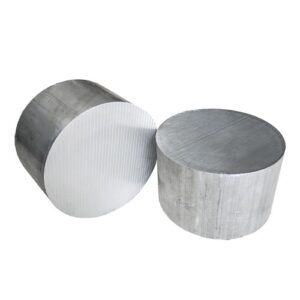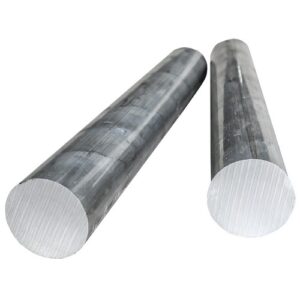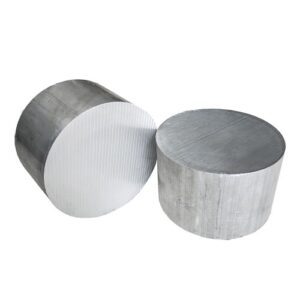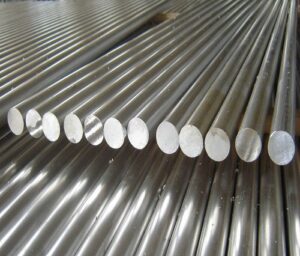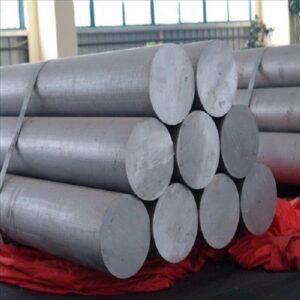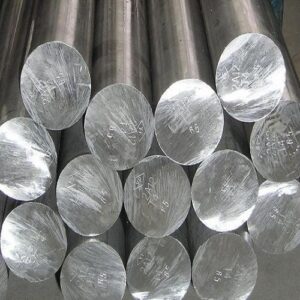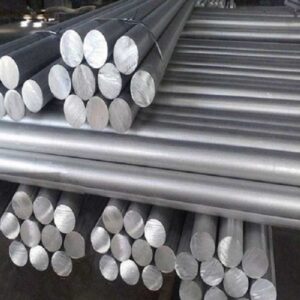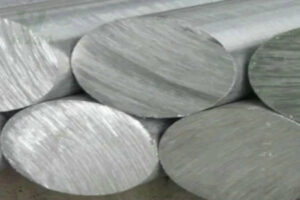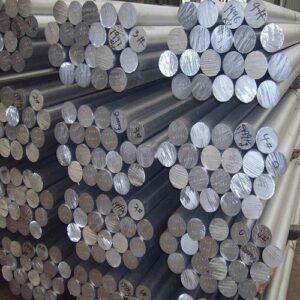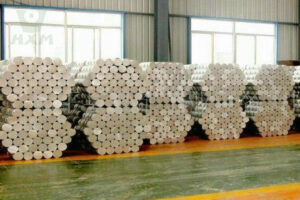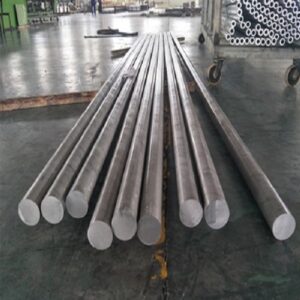Aluminum Alloy 7050 | UNS# A97050 Aluminum Bars have high strength, high corrosion resistance, high fracture toughness, and fatigue resistance. Due to these desirable properties, Aluminum Alloy 7050 is widely used in aircraft structural applications. This alloy has better corrosion resistance and toughness than 7075 and has become the metal of choice for fuselage frames, bulkheads, and wing skins.
Our company has a large inventory of 7075 aluminum bars for sale. If you would like to know more product information, inventory prices, etc., please contact us directly.
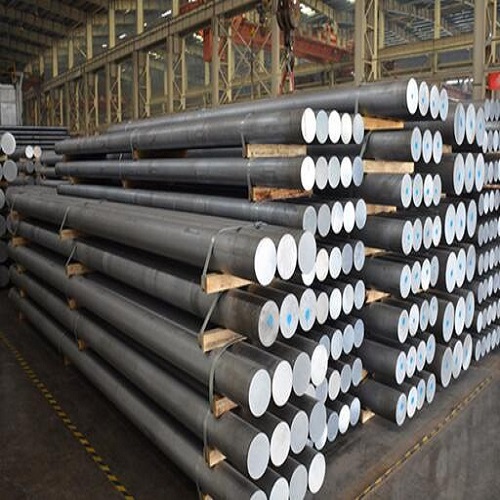
7050 Aluminum Bars Specifications
Standards: ASTM B221, B211, B565, B316 7050, AMS 4342, etc.
Tempers: T7651, T7451, T74511, etc.
Aluminum bar form: Aluminum round, hexagonal, flat, semi-circular, oval, rectangular black, and glossy finish
Aluminum round bar diameter: 0.1-600mm, etc.
Aluminum hexagonal bar: 0.1-600mm, etc.
Aluminum angle bar size: 0.5mm*40mm*40mm-20mm*400mm*400mm
Aluminum flat steel thickness: 0.1-600mm, etc.
Aluminum flat bar size: 1-2500mm, etc.
Aluminum round bar length: 1-12m, random, fixed, and cut length or according to customer requirements
7050 Aluminum Bars Product Introduction
Aviation super duralumin alloy, high strength, good wear resistance
7050 is a high-strength heat-treatable alloy, aviation super-hard aluminum alloy, high strength, good wear resistance, with extremely high strength and resistance to spalling corrosion and stress corrosion fracture performance. Commonly used in aircraft structural parts for medium and thick plate extrusions, free forging parts and die forgings.
7050 Aluminum Bar Typical Uses
7050 is mainly used to manufacture aircraft structures and other high-stress structural parts that require high strength and corrosion resistance, such as aircraft, lower wing wall panels, trusses, etc. Good plasticity after solid solution treatment, good heat treatment strengthening effect, good strength below 150 degrees, low-temperature strength, poor welding performance, stress corrosion cracking tendency.
It is also widely used in mold processing, machinery, and equipment, tooling fixtures, the aerospace industry, blow molding (bottle) mold, ultrasonic plastic welding mold, golf head, shoe mold, paper mold, foam molding mold, wax removal mold, mechanical equipment, used to make high-end aluminum alloy bicycle frame. In 2014, it will be used for the first time as the body material of the smartphone OPPO N3.

7050 Aluminum Bar Data Sheet
Aluminium 7050 Bar Equivalent Grades
| UNS | EN | DIN,WNr | ISO |
| A97050 | EN3982 | 3.4144 | AlZn6CuMgZr |
Chemical Composition
Alloy grade | Si | Fe | Cu | Mn | Mg | Cr | Zn | Ti | Zr | other | AL | |||
New grade | Old grade | 0.12 | 0.15 | 2.0-2.6 | 0.1 | 1.9-2.6 | 0.04 | 5.7-6.7 | 0.06 | 0.08-0.15 | each | total | ||
7050 | —— | 0.05 | 0.15 | Allowance | ||||||||||
Mechanical Properties
| Temper | Tensile Strength (MPa) | Yield Strength (MPa) | Elongation (%) | Hardness (HB) | Fracture Toughness | Additional Notes |
|---|---|---|---|---|---|---|
| T651 | 490-540 | 420-475 | 8-12 | 140-150 | Good | Standard temper, good balance of properties |
| T7351 | 465-520 | 365-420 | 8-12 | 135-145 | Excellent | Enhanced resistance to stress corrosion |
| T7451 | 510-565 | 455-520 | 7-12 | 150-160 | Excellent | Good resistance to exfoliation and stress corrosion |
| T7651 | 515-585 | 455-525 | 6-10 | 150-165 | High | Superior exfoliation and stress corrosion resistance |
| T73 | 490-540 | 410-450 | 7-10 | 135-145 | Excellent | Enhanced stress corrosion cracking resistance |
| T6 | 520-590 | 455-525 | 7-12 | 150-160 | Moderate | Higher strength with moderate corrosion resistance |
- T651: Standard temper offering a good balance of strength, toughness, and corrosion resistance.
- T7351: Optimized for excellent resistance to stress corrosion cracking, suitable for critical applications.
- T7451: Known for its good balance of strength and excellent corrosion resistance, especially to exfoliation.
- T7651: Provides superior exfoliation and stress corrosion resistance, ideal for high-stress environments.
- T73: Enhanced resistance to stress corrosion cracking, making it suitable for critical aerospace components.
- T6: Highest strength among the tempers listed, with moderate corrosion resistance, suitable for applications requiring maximum strength.
These properties make Aluminum 7050 a versatile and high-performance material, particularly in the aerospace industry and other high-stress applications. The choice of temper should align with specific requirements such as mechanical strength, corrosion resistance, and fracture toughness.
Physical Properties
| Property | Value |
|---|---|
| Density | 2.83 g/cm³ |
| Melting Point | 477-635°C (891-1175°F) |
| Thermal Conductivity | 130 W/m-K |
| Electrical Conductivity | 35-40% IACS |
| Coefficient of Thermal Expansion | 23.6 x 10^-6 /°C |
| Modulus of Elasticity | 71.7 GPa |
These physical properties make 7050 aluminum a reliable material for high-performance applications where consistent thermal and electrical properties are critical. The temperature is selected to optimize mechanical properties while maintaining stable physical properties.
Quality Characteristics
Density: 2.90g/cm³.
Shear strength: alloy (bare) and aluminum-clad alloy, O state: 152MPa (22ksi); Alloy (bare) T6, T7451 Status: 331MPa (48ksi); Aluminum alloy T6, T7451 status: 317MPa (46ksi).
Hardness: O state: 60HB; T6, T7451 Status: 150HB; The data is taken from the 10 mm diameter ball and the test results of 30 s under a load of 500 kg.
Poisson’s ratio: 0.33.
Modulus of elasticity: Tensile: 71.0 GPa (10.3×106psi), Shear: 26.9GPa (3.9×106psi), Compression 72.4GPa (10.5×106psi)
Fatigue strength: T6, T7451, T73 Status: Smooth non-notched specimen in R· R· In the Moore type test, 5×108 cycles were made at 159MPa (23ksi).
7050 Aluminum Bar Package
The following is our company’s standard aluminum bar export packaging. If the customer has any packaging requirements, our company can meet them.
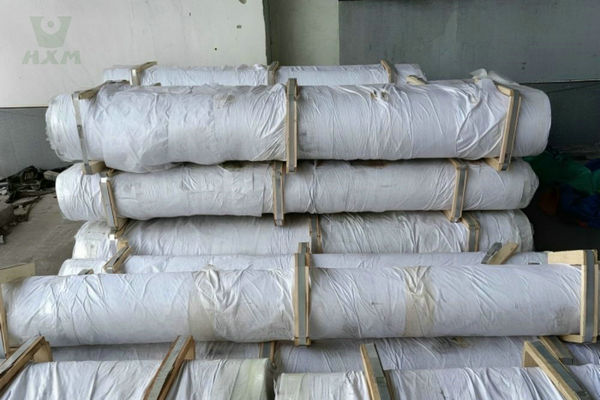
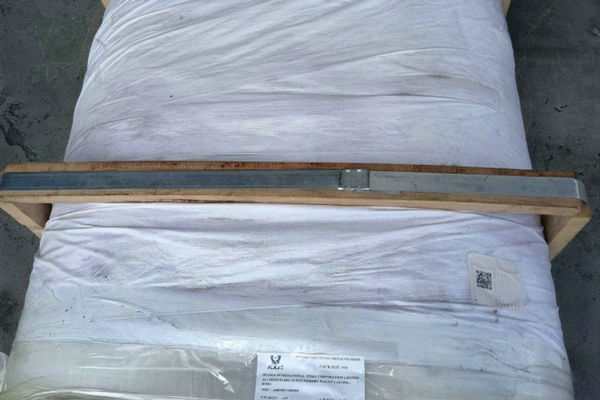
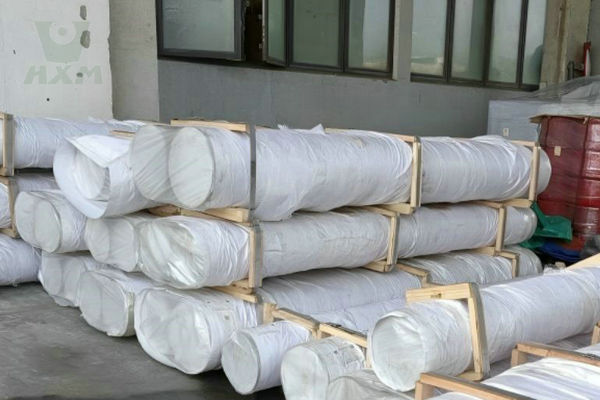
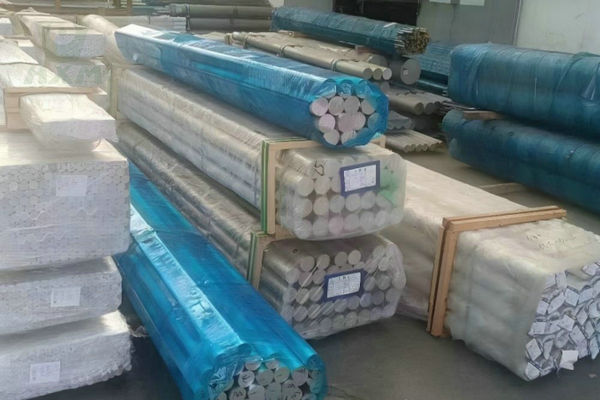
FAQ
1. What is 7050 Aluminum Bar?
7050 Aluminum Bar is a high-strength, heat-treatable aluminum alloy predominantly used in aerospace and other high-stress applications. It is part of the 7000 series, which is known for its high strength and excellent resistance to stress corrosion cracking.
7000 Series Aluminum
2. What are the Main Chemical Components of 7050 Aluminum Bars?
Aluminum: The base element, provides a balance of properties and the primary structure of the alloy.
Zinc: The primary alloying element, contributing to high strength and good resistance to stress corrosion cracking.
Magnesium: Works synergistically with zinc to enhance strength and improve toughness.
Copper: Increases strength and hardness, particularly after heat treatment.
Chromium: Enhances corrosion resistance and improves toughness.
Zirconium: Refines the grain structure, improving strength and toughness.
Fe and Si: Present as impurities in small amounts, controlled to maintain alloy performance.
Ti and Mn: Added in trace amounts to enhance specific properties like grain refinement and corrosion resistance.
The chemical composition of 7050 aluminum bars is carefully balanced to achieve a high-strength, high-performance alloy with excellent resistance to stress corrosion cracking. These properties make it suitable for demanding applications such as aerospace structures, military vehicles, and high-performance automotive components.
3. What are the Typical Applications of 7050 Aluminum Bars?
Aerospace structures (e.g., fuselage frames, wing spars)
Aircraft landing gear components
Armored vehicles
High-performance automotive parts
Marine hulls and marine hardware
Tool and die making (e.g., molds, fixtures)
Robotics and automation equipment
Sporting goods (e.g., bicycle frames)
Military weapons systems
Industrial machinery
4. What are the Mechanical Properties of 7050 Aluminum Bars?
Strength: The 7050 aluminum bar has high tensile and yield strengths, making it suitable for structural applications that require strength and toughness.
Toughness: Good fracture toughness and fatigue resistance, suitable for aerospace and defense applications.
Elongation: Has moderate elongation, providing some ductility for forming and processing operations.
Hardness: Typically medium to high hardness, depending on the temper, affecting wear resistance and machinability.
The mechanical properties of 7050 aluminum bars are optimized through various tempering conditions, providing a balance of strength, toughness, and hardness for demanding applications in aerospace, military, automotive, and industrial fields. Selecting the correct temper is critical to meet specific performance requirements and operating conditions.
5. What is the Heat Treatment Method of 7050 Aluminum Bars?
Aluminum 7050 bars are typically heat treated to enhance their mechanical properties, particularly strength and toughness. The most common heat treatment methods used for 7050 aluminum bars include:
1. Solution Heat Treatment (T7 Temper)
Purpose: Solution heat treatment involves heating the alloy to a specific temperature range to dissolve alloying elements into the aluminum matrix.
Temperature: Typically performed at around 475°C (885°F) for a specified time.
Effect: Reduces the alloy’s strength by dissolving the soluble alloying elements, preparing it for subsequent strengthening processes.
2. Aging (Precipitation Hardening)
Purpose: Aging involves cooling the material to a lower temperature to precipitate fine particles within the alloy matrix, which increases strength.
Temper Designations:
T6 Temper: Solution heat-treated and artificially aged.
T73 Temper: Solution heat-treated, cold worked, and artificially aged.
T7451 Temper: Solution heat-treated, stress relieved by stretching, and artificially aged.
Temperature: Aging temperatures typically range from 120-190°C (250-375°F) depending on the specific temper.
Effect: Increases strength, and hardness, and improves resistance to stress corrosion cracking and fatigue.
3. Annealing
Purpose: Annealing involves heating the alloy to a temperature below its melting point, followed by controlled cooling to relieve internal stresses and improve workability.
Effect: Softens the material, making it more ductile and easier to form or machine.
6. Is 7050 Aluminum Bar Suitable for Welding?
It can be welded. However, since 7050 aluminum contains alloying elements such as zinc, magnesium, copper, and chromium, these elements can affect its weldability. Zinc in particular can cause hot cracking if not properly controlled during the welding process.
7. What are the Advantages of 7050 Aluminum Bars Compared to Other Aluminum Alloys?
Strength and Toughness
7050: Comparable strength to 7075 aluminum, good toughness, and fatigue resistance, suitable for heavy-duty applications in aerospace and defense.
7075: Similar strength, but slightly higher hardness, better stress corrosion resistance. Widely used in aerospace and military applications.
6061: Moderate strength, good weldability, and corrosion resistance, often used in structural applications requiring lightweight and moderate strength.
2014: High strength, excellent machinability, used in aerospace and structural applications requiring high fatigue resistance and moderate toughness.
6063: Good corrosion resistance, excellent extrudability, suitable for construction applications and parts requiring complex shapes.
Corrosion Resistance
7050: Has good corrosion resistance, especially when properly protected or coated.
7075: Better corrosion resistance than 7050, especially in harsh environments.
6061: Excellent corrosion resistance, suitable for marine and construction applications.
2014: Moderate corrosion resistance, often used in structural applications where strength and machinability are critical.
6063: Good atmospheric corrosion resistance, ideal for architectural and automotive interior applications.
Machinability
7050: Generally considered to have moderate to good machinability, suitable for operations such as drilling, milling, and turning.
7075: Due to its higher hardness, it is more difficult to machine compared to 7050, requiring specialized techniques and tools.
6061: Excellent machinability, making it widely used in machining operations and structural applications.
2014: High machinability, especially in the heat treated condition, is widely used in aerospace and automotive components.
6063: Excellent extrudability and machinability, often used for complex shapes and profiles in architectural and automotive applications.
7050 aluminum bar excels in applications that require high strength, toughness, and resistance to fatigue and stress corrosion. While each of the aluminum alloys mentioned (7075, 6061, 2014, 6063) has its own unique advantages and applications, 7050 aluminum is the best choice for aerospace, military, and high-performance industrial applications.
8. What is the Price of 7050 Aluminum Bars?
The price of 7050 aluminum bars can vary widely based on several factors, including current market conditions, supplier pricing, purchase quantity, size, and specific tempering or processing requirements.
Market Conditions: Prices fluctuate based on global aluminum supply and demand, economic conditions, and geopolitical factors that affect raw material costs.
Quantities and Sizes: Bulk purchases typically reduce unit costs due to economies of scale. Larger diameter bars or custom sizes may also affect pricing.
Processing and Quality: Additional processing steps such as heat treatment, machining, or specific certifications (e.g., to aerospace standards) may affect pricing.
Suppliers: Different aluminum bar suppliers may offer different prices based on their cost structure, location, and services provided.
To obtain accurate pricing for 7050 aluminum bars, it is best to contact an aluminum bar supplier or distributor directly. They can provide quotes based on your specific requirements, quantity, and current market conditions.
9. How to Buy 7050 Aluminum Bars?
There are several factors to consider when buying 7050 aluminum bars to ensure you get the right material for your application, meet quality standards, and stay within budget.
Define Requirements:
Specifications: Determine the required size (diameter, length, thickness), temper (e.g., T651, T7451), and quantity required.
Quality Standards: Specify any certifications (e.g., ASTM, AMS) or quality assurance required for your application.
Research Suppliers:
Aluminum Suppliers: Identify reputable suppliers or distributors that specialize in aerospace-grade aluminum alloys like 7050.
Online Platforms: Browse online platforms, industry directories, or industry associations for a list of certified suppliers.
Request for Quote (RFQ):
Contact Suppliers: Contact multiple suppliers with your specifications and request a detailed quote.
Include Requirements: Provide details such as quantity, size, state, quality standards, and any specific processing requirements (e.g., heat treatment).
Compare Quotes:
Price: Compare 7050 aluminum bar prices from different aluminum bar suppliers, considering factors such as material quality, processing capabilities, and additional services offered (e.g., cutting, machining).
Delivery Terms: Evaluate delivery time, shipping costs, and delivery schedules to meet project timelines.
Check Aluminum Bar Supplier Qualifications:
Quality Certifications: Ensure aluminum bar suppliers meet industry standards and certifications related to aerospace or high-performance applications.
Customer Reviews: Check reviews or references from other customers to assess supplier reliability and customer service.
Negotiate Terms:
Discuss Terms: Negotiate pricing, payment terms, volume discounts, and any additional services required (e.g., testing, certification).
Clear Lead Time: Confirm delivery times and availability to fit your project schedule.
Place Order:
Finalize Agreement: Once you are satisfied with the supplier, confirm order details, including specifications, price, terms, and delivery schedule.
Purchase Order: Issue a purchase order detailing all agreed-upon terms and conditions.
Quality Assurance:
Inspection: Upon receipt, inspect the 7050 aluminum bars to ensure they meet your specifications and quality standards.
Testing: Perform any required testing or inspections (e.g., dimensional inspection, chemical composition analysis) with your quality assurance plan.
Follow-up:
Feedback: Provide feedback to the supplier based on your experience with product quality, delivery, and overall service.
Maintain the relationship: Build a relationship with a reliable supplier for future needs and ongoing support.
Conclusion
Purchasing 7050 aluminum bars requires careful planning, from defining requirements and selecting an aluminum bar supplier to negotiating terms and ensuring quality assurance. By following these steps, you can effectively source high-quality 7050 aluminum bars that fit your specific application requirements.
10. What is the Stock Situation of 7050 Aluminum Bars?
Our company currently has a large number of 7050 aluminum bars in stock. If you need 7050 aluminum bars urgently, you can send us your specific requirements directly and I will check whether your required size is in our stock. If not, our company will quickly produce and deliver according to your specific requirements, with a delivery time of about 7-25 days.
